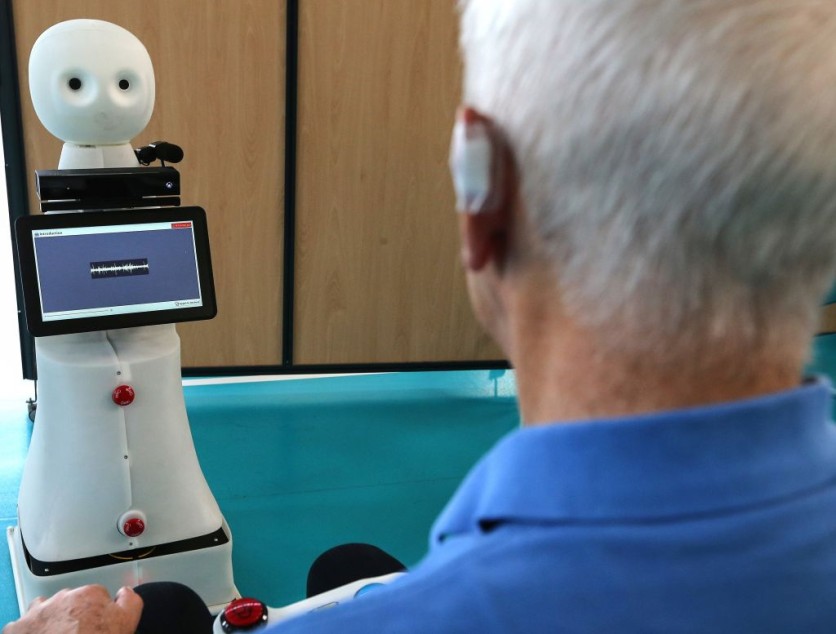French hospital trials 'socially assistive' robots to support the elderly. The Assistance Publique Hôpitaux de Paris in France recently welcomed a group of "socially assistive" robots to alleviate the workload for its human staff.

A geriatric assistant robot called Clarc able to assess the health and the quality of life of an elderly person, is tested at Troyes Rehabilitation center (Centre de Reeducation et de Readaptation Fonctionnelle de Troyes), on June 26, 2019.
Helping the Elderly
In a captivating new study, a Parisian hospital featured a batch of healthcare robots developed by a Scottish artificial intelligence (AI) team from Heriot-Watt University in Edinburgh.
These robots, part of the Heriot-Watt University's National Robotarium Socially Assistive Robots in Gerontological Healthcare (SPRING) project, were designed to perform routine tasks and interact with elderly patients at the Assistance Publique Hôpitaux de Paris.
Interesting Engineering reported that the trials showcase the advancements in large language model technology, enabling robots to engage in natural and fluent conversations.
Results suggest that these robots can actively participate in social interactions, such as greeting patients, answering questions, and providing directions, effectively easing the workload for human staff members.
Notably, the robots demonstrate the ability to comprehend multi-party conversations, following dialogue among several individuals simultaneously. The possibility of robots working seamlessly alongside hospital staff to improve the patient experience has taken a step closer to reality.
Initial trials at Assistance Publique Hôpitaux de Paris have shown the robot's effective ability to engage in conversations with patients and their companions simultaneously, as reported by Futurescot.
Oliver Lemon, a professor of AI and academic co-lead at the National Robotarium, shared insights into the project, stating that they view the SPRING project as a substantial milestone in the advancement of interactive robotics.
He expressed pride in its achievements while acknowledging the exciting challenges that still lie ahead. Throughout the trial, the robots undertook simple and repetitive tasks, effectively minimizing direct physical contact between healthcare providers and patients.
Preliminary feedback suggests that incorporating socially assistive robots has the potential to reduce the risk of infection transmission and enhance the overall efficiency of healthcare professionals.
Vital Component of Patient Care Within Hospitals
Professor Anne-Sophie Rigaud, heading the Department at Assistance Publique Hôpitaux de Paris, observed a growing interest among patients in robotics and advancements within hospital services.
As per Time, the ARI robot is seen as evolving into a vital component of patient care within hospitals, given its capacity for social interaction and guidance provision.
In expressing satisfaction, she remarked that older adults have conveyed approval of the robot's design, believing it could be valuable for offering information and companionship to patients with cognitive disorders.
The trials in Paris have provided valuable insights into how this emerging technology can elevate care delivery and safety. Simultaneously, they have contributed to advancements in computer vision, audio processing, and human-robot interaction, with potential applications globally.
Related Article : Can These Hospital Robots Like Moxi Alleviate Burnout Among Nurses?

ⓒ 2025 TECHTIMES.com All rights reserved. Do not reproduce without permission.




